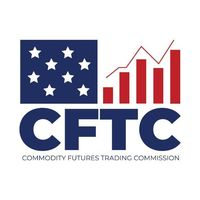CFTC Drops Appeal: A New Era for Political Betting in America
May 6, 2025, 6:07 am

Location: United States, District of Columbia, Washington
Employees: 501-1000

Location: United States, California, San Francisco
Employees: 11-50
Founded date: 2018
Total raised: $30M
The U.S. Commodity Futures Trading Commission (CFTC) has taken a significant step by dropping its appeal against KalshiEX, a derivatives trading platform. This decision opens the door for Americans to place bets on political events, a move that has stirred both excitement and concern.
On May 5, 2025, the CFTC filed a motion in the U.S. Court of Appeals for the D.C. Circuit, seeking to voluntarily dismiss its appeal. This decision came after a unanimous vote by the Commission, with one commissioner abstaining. The agency's action signals a shift in the regulatory landscape surrounding prediction markets, particularly those tied to political outcomes.
KalshiEX has been at the forefront of this change. The platform sought permission from the CFTC in June 2023 to list contracts allowing Americans to wager on election results. Initially, the CFTC blocked these contracts, citing concerns over unlawful gaming and public interest. Kalshi responded by suing the CFTC, arguing that the agency had overstepped its authority. In September 2024, a federal judge ruled in favor of Kalshi, stating that the CFTC lacked the jurisdiction to prohibit these contracts.
The CFTC's appeal followed, but the agency's recent decision to drop it indicates a retreat from its previous stance. The implications of this move are profound. Kalshi can now offer contracts on a variety of political events, including who will be the nominees for the Republican and Democratic parties in the 2028 presidential election. The platform also allows bets on the outcomes of Senate races and gubernatorial contests.
Critics of the CFTC's decision have voiced strong concerns. Advocacy groups like Better Markets argue that allowing betting on political outcomes undermines the integrity of elections. They warn of potential market manipulation and investor losses, claiming that the CFTC is ill-equipped to oversee such a complex and sensitive area. The legal precedent set by this case could have lasting effects on how political events are viewed in the financial markets.
Supporters of Kalshi, including its CEO Tarek Mansour, celebrate the decision as a victory for innovation and transparency. They argue that prediction markets can provide valuable insights into public sentiment and political trends. By allowing these markets to flourish, they believe the CFTC is embracing a new era of financial engagement.
The CFTC's decision to drop the appeal reflects a broader trend in regulatory attitudes toward prediction markets. As technology evolves, so too does the need for regulatory frameworks that can adapt to new realities. The rise of online betting platforms has transformed how people engage with politics, and regulators are now faced with the challenge of keeping pace.
The implications of this decision extend beyond Kalshi. Other platforms may now feel emboldened to enter the political betting space, potentially leading to a proliferation of similar offerings. This could reshape the landscape of political engagement in America, where betting on outcomes becomes as commonplace as discussing them at the dinner table.
However, the CFTC's retreat raises questions about the agency's role in safeguarding public interest. Critics argue that the decision to allow betting on elections could lead to unforeseen consequences. The potential for manipulation and the ethical implications of treating political outcomes as commodities are significant concerns.
As the dust settles, the future of political betting in America remains uncertain. Will it lead to greater transparency and engagement, or will it open the floodgates to exploitation and manipulation? The CFTC's decision marks a pivotal moment, but the long-term effects will depend on how the market evolves and how regulators respond.
In the coming months, all eyes will be on Kalshi and similar platforms. Will they thrive in this new environment, or will the challenges of regulation and public perception stifle their growth? The answers to these questions will shape the future of political betting in America.
As the landscape shifts, one thing is clear: the intersection of politics and finance is becoming increasingly blurred. The CFTC's decision to drop its appeal is just the beginning of a new chapter in this evolving story. The stakes are high, and the implications are profound. In this brave new world, the line between betting and political engagement may become harder to define.
In conclusion, the CFTC's withdrawal from the appeal against KalshiEX is a watershed moment for political betting in the United States. It reflects a changing regulatory environment and raises critical questions about the future of democracy and financial markets. As this new era unfolds, the implications will resonate far beyond the confines of the trading floor. The world will be watching.
On May 5, 2025, the CFTC filed a motion in the U.S. Court of Appeals for the D.C. Circuit, seeking to voluntarily dismiss its appeal. This decision came after a unanimous vote by the Commission, with one commissioner abstaining. The agency's action signals a shift in the regulatory landscape surrounding prediction markets, particularly those tied to political outcomes.
KalshiEX has been at the forefront of this change. The platform sought permission from the CFTC in June 2023 to list contracts allowing Americans to wager on election results. Initially, the CFTC blocked these contracts, citing concerns over unlawful gaming and public interest. Kalshi responded by suing the CFTC, arguing that the agency had overstepped its authority. In September 2024, a federal judge ruled in favor of Kalshi, stating that the CFTC lacked the jurisdiction to prohibit these contracts.
The CFTC's appeal followed, but the agency's recent decision to drop it indicates a retreat from its previous stance. The implications of this move are profound. Kalshi can now offer contracts on a variety of political events, including who will be the nominees for the Republican and Democratic parties in the 2028 presidential election. The platform also allows bets on the outcomes of Senate races and gubernatorial contests.
Critics of the CFTC's decision have voiced strong concerns. Advocacy groups like Better Markets argue that allowing betting on political outcomes undermines the integrity of elections. They warn of potential market manipulation and investor losses, claiming that the CFTC is ill-equipped to oversee such a complex and sensitive area. The legal precedent set by this case could have lasting effects on how political events are viewed in the financial markets.
Supporters of Kalshi, including its CEO Tarek Mansour, celebrate the decision as a victory for innovation and transparency. They argue that prediction markets can provide valuable insights into public sentiment and political trends. By allowing these markets to flourish, they believe the CFTC is embracing a new era of financial engagement.
The CFTC's decision to drop the appeal reflects a broader trend in regulatory attitudes toward prediction markets. As technology evolves, so too does the need for regulatory frameworks that can adapt to new realities. The rise of online betting platforms has transformed how people engage with politics, and regulators are now faced with the challenge of keeping pace.
The implications of this decision extend beyond Kalshi. Other platforms may now feel emboldened to enter the political betting space, potentially leading to a proliferation of similar offerings. This could reshape the landscape of political engagement in America, where betting on outcomes becomes as commonplace as discussing them at the dinner table.
However, the CFTC's retreat raises questions about the agency's role in safeguarding public interest. Critics argue that the decision to allow betting on elections could lead to unforeseen consequences. The potential for manipulation and the ethical implications of treating political outcomes as commodities are significant concerns.
As the dust settles, the future of political betting in America remains uncertain. Will it lead to greater transparency and engagement, or will it open the floodgates to exploitation and manipulation? The CFTC's decision marks a pivotal moment, but the long-term effects will depend on how the market evolves and how regulators respond.
In the coming months, all eyes will be on Kalshi and similar platforms. Will they thrive in this new environment, or will the challenges of regulation and public perception stifle their growth? The answers to these questions will shape the future of political betting in America.
As the landscape shifts, one thing is clear: the intersection of politics and finance is becoming increasingly blurred. The CFTC's decision to drop its appeal is just the beginning of a new chapter in this evolving story. The stakes are high, and the implications are profound. In this brave new world, the line between betting and political engagement may become harder to define.
In conclusion, the CFTC's withdrawal from the appeal against KalshiEX is a watershed moment for political betting in the United States. It reflects a changing regulatory environment and raises critical questions about the future of democracy and financial markets. As this new era unfolds, the implications will resonate far beyond the confines of the trading floor. The world will be watching.